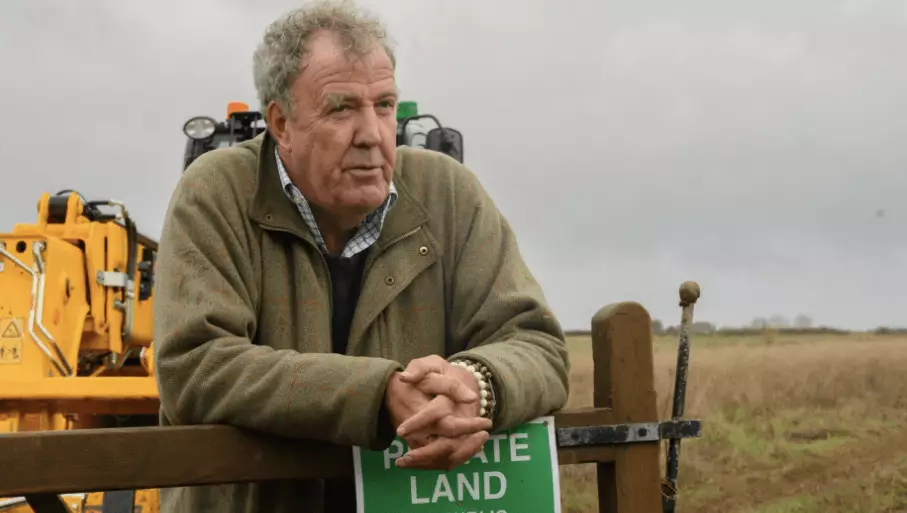Jeremy Clarkson, the renowned broadcaster and writer, has long been a polarizing figure. His foray into farming with his series “Clarkson’s Farm” not only showcased his unfiltered take on rural life but also brought to light a decade-old statement that sparked widespread criticism. In a 2009 column, Clarkson articulated his motivation for purchasing Diddly Squat Farm, asserting that investing in land was superior to placing money in banks and that a rural property could circumvent inheritance taxes. His cavalier approach to a serious financial topic did not endear him to many, particularly amidst ongoing discussions about taxation and its implications for farmers across the UK.
Over time, as the narrative surrounding his farming endeavors gained momentum, Clarkson found himself in a precarious position. Recently, following protests by farmers against the government’s proposed inheritance tax policies, he appeared on The Times to clarify his intentions for buying the farm. His admission—that he shrouded his true motivations behind a façade of tax evasion—drew attention to his evolving stance. While he initially portrayed his purchase as a strategic financial maneuver, he later revealed a more personal and less calculated reason: a desire to establish a shooting ground. This shift in narrative raises questions about authenticity and the principles underpinning Clarkson’s public persona.
Rural Advocacy or Personal Agenda?
Clarkson’s evolution from a loud-mouthed petrolhead to a benevolent farm champion mirrors the complexities of modern celebrity culture. His newfound dedication to advocating for farmers brings forth both admiration and skepticism. A central theme in his later interviews is the notion that government figures misunderstand the burdens faced by those in the agricultural sector. By rallying alongside fellow farmers, Clarkson positions himself as a voice of rural concern during a critical juncture. However, one must ponder whether this newfound advocacy is a genuine commitment to the farming community or a strategic move to redeem his controversial past.
Despite his passionate defense of farmers and agricultural rights, Clarkson has unequivocally rejected calls to pursue a political career. He stated bluntly, “I’d be a terrible political leader, hopeless.” This admission highlights a crucial distinction in his character: While he may be a formidable public figure possessing a substantial platform, his self-awareness acknowledges the complexities and challenges associated with political leadership. Clarkson’s understanding of his limitations perhaps underscores the authenticity in his advocacy—rather than seeking political gain, he seemingly desires to share the struggles of farmers without the pursuit of an electoral agenda.
The Future of Clarkson’s Farm
Looking ahead, the trajectory of “Clarkson’s Farm” suggests more than just a television series; it serves as a vehicle for deeper discussions on agriculture, inheritance tax, and public perceptions of farming in Britain. Clarkson’s adventures and mishaps offer a glimpse into the arduous and sometimes unglamorous realities of farm life, ultimately presenting an opportunity to educate his audience on the issues that plague rural communities. As he continues to navigate the intricate relationship between fame, farming, and finance, viewers are left to interpret whether his journey is one of personal growth or merely a well-crafted narrative aimed at securing his place in a rapidly changing landscape.
While Jeremy Clarkson remains a figure of contention, his pivot from a controversial statement to a narrative of rural advocacy demonstrates the fluid nature of public opinion. His admission about the motivations for buying his farm highlights the importance of transparency and truth in an era where celebrity narratives are scrutinized more intensely than ever. Whether Clarkson will be able to maintain his authenticity while navigating the complexities of modern farming remains to be seen, but one thing is clear: his story is far from over.


Leave a Reply